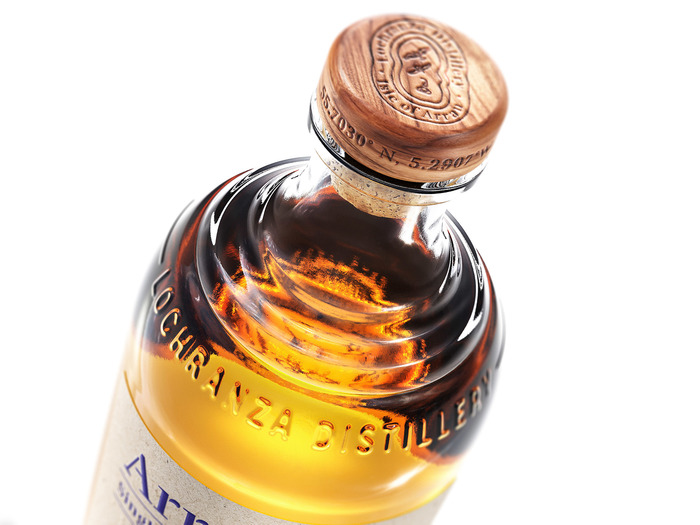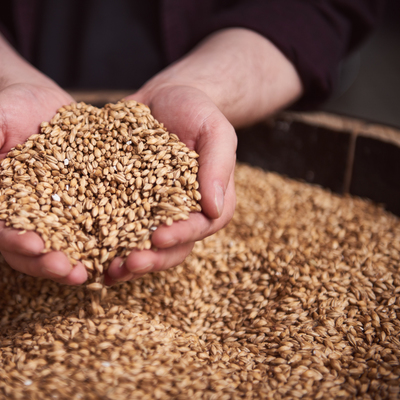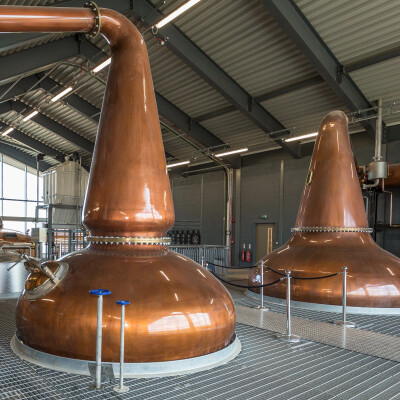Does Whisky Go Bad? How to Store Whisky
Whisky, the amber-coloured nectar beloved by connoisseurs and casual drinkers alike, holds a unique place in the world of spirits. But one question often arises among whisky enthusiasts: Does whisky go off? Indeed, you might well be reading this now while looking at an open bottle on your shelf and wondering the same.
The answer, while not entirely straightforward, can be understood by exploring how whisky is made, stored and consumed.
Whisky shelf life: Can it go off?
The simple answer is no…at least in the sense of going sour like milk or developing a vinegar taste like wine. Whisky doesn’t have a best before or expiry date, so drinking whisky that’s been open for a few years won’t make you ill - unless you overindulge!
If a bottle is unopened and stored properly, it will last indefinitely. Whiskies get a lot of their flavours and characteristics from the time spent maturing in casks, which can range from a few years to several decades. Once whisky is bottled, the ageing process halts. This is in contrast to wine, which continues to age in the bottle and develop and take on new flavours - a process that stops as soon as the cork is removed. So a 10 year old whisky will remain a 10 year old whisky no matter how long it sits in your cellar or on your shelf. However, that doesn’t mean it’s immune to changes over time.
Once you open a bottle of whisky, the air reacts with it, and oxidation occurs. The less whisky there is in the bottle, the more room there is for air to react with the liquid. As the whisky ‘breathes’ molecules dissipate, while at the same time it absorbs water (this is because ethanol is hygroscopic, meaning it can absorb water from the air).
Now this isn’t any sudden cause for concern. A newly opened bottle of whisky won’t change overnight. As long as the stopper is pushed in tight, your whisky should remain unchanged in flavour for several months to 2 years (as long as it’s at least half full). Any longer than this, and you may notice that the colour starts to fade or the finish isn’t as smooth as it was originally.
But fear not, there are steps you can take to store your whisky and reduce the risk of it going ‘bad’.
How to store unopened whisky

As long as the seal is intact, a bottle of whisky can remain in pristine condition for decades. However, we recommend following the below tips:
- Store upright: Unlike wine, which should be stored on an angle to keep the cork wet, store your whisky bottle upright to avoid contact with the cork (if it has one) and prevent it from disintegrating.
- Avoid direct light: UV rays from the sun can deteriorate whisky over time and cause it to fade. Store your bottles in a dark place or in a cabinet away from windows.
- Keep it cool: Store your bottles in a cool, stable environment, ideally between 15 to 20°C. Avoid any locations where the temperature may fluctuate, as this can cause the cork to expand and contract.
- Avoid humidity: Too much humidity risks the cork losing its shape or even becoming mouldy. Also, humidity can cause damage to the label, which isn’t ideal if you are keeping your whisky as part of a collection.
How to store opened whisky
As we explained above, once the seal on a bottle of whisky is open, oxidation will occur. To extend the life of your whisky, consider the following tips:
- Limit air exposure: Keep the bottle tightly sealed when not in use. You can buy special protective films to wrap over if the bottle doesn’t have a cork.
- Store properly: Just like unopened bottles, store your whisky in a cool place, away from direct sunlight.
- Transfer to a smaller bottle: If the bottle is more than half empty, then it's a good idea to transfer it to a smaller bottle. This will limit the amount of oxidation that can take place.
Whisky miniatures
If you like to experiment with different whiskies but only drink them occasionally, whisky miniatures can be a much better option than buying a full size bottle. There’s little risk of them sitting open on your shelf for too long and they also give you an opportunity to explore new flavours.


